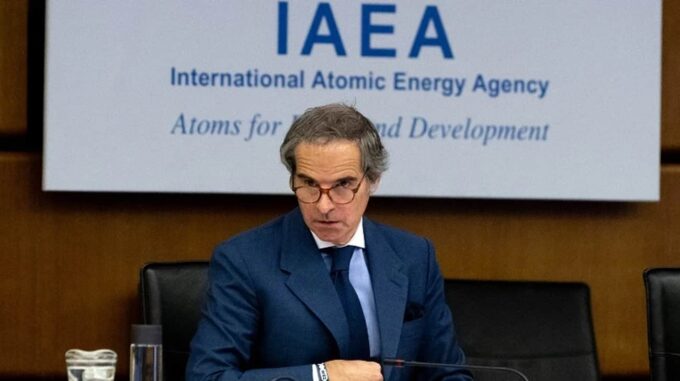Israel has conducted new strikes against Iran’s nuclear facilities, damaging six key infrastructure objects in the city of Isfahan, which has raised serious concern within the international community and increased tensions in the region

This information was published by the International Atomic Energy Agency (IAEA), citing data from its Director General Rafael Grossi, who confirmed that Israel carried out a repeated strike on this strategically important nuclear complex. According to Grossi, this attack was the second in a few weeks — the first occurred on June 13 and resulted in the destruction of four facilities, including a central chemical laboratory, nuclear fuel production and processing plants, and uranium enrichment facilities. The new attack, which took place on Sunday, approximately nine days later, caused significant damage to at least six buildings within the Isfahan nuclear complex. Official reports indicate that during this recent operation, a wide range of targets was struck: natural and depleted uranium production plants, manufacturing shops for fuel rods and low-enriched uranium granules, as well as specialized laboratories conducting research in nuclear technology. Additionally, the nuclear materials storage and the complex’s office building were severely damaged — all pointing to a high level of destruction and serious degradation of Iran’s nuclear infrastructure. Grossi emphasized that this nuclear facility in Isfahan is one of the most important components of Iran’s nuclear program and has been targeted several times before, significantly reducing its functionality. “This complex has repeatedly been attacked and sustained substantial damage, complicating Iran’s further nuclear development,” the IAEA chief stated. The escalation in regional tensions was further fueled after Israeli Air Force night strikes on several targets within Iran on June 21. These included the destruction of not only the nuclear site in Isfahan but also four missile launchers prepared for rocket launches. Israeli military officials confirmed these targets, stating that the strikes were part of a broader operation aimed at containment of Iran’s nuclear program and preventing its progress. The international community responded with concern over the escalation of the conflict in the region and potential implications for global security. Western countries once again called for dialogue and diplomatic efforts to resolve the situation, while Israel and Iran continue to increase military activity and heighten regional tensions, which could lead to new conflicts and complicate diplomatic efforts on nuclear issues. The current situation with the damage to Iranian nuclear objects is among the most serious in recent years. At the same time, experts stress that these strikes have far-reaching consequences for regional stability and the potential development of Iran’s nuclear program, which already raises global concerns. The struggle for control over nuclear technology and resources continues, and periodic attacks by Israel underline the deep apprehension about future developments in this strategically vital region.

